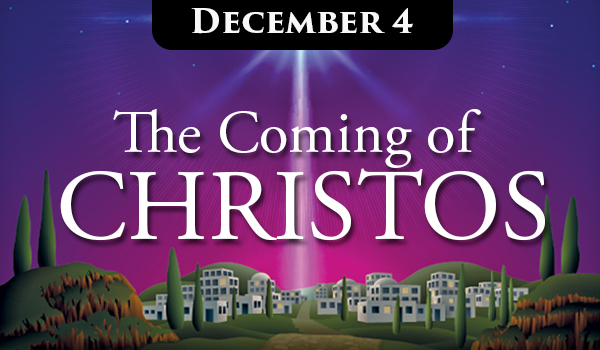Read: Luke 1:8–23
But the angel said to him: “Do not be afraid, Zechariah;
your prayers have been heard.”
Luke 1:13a
400 years. That’s how long it had been since God spoke—at least from the standpoint of biblical writing. Despite the efforts of Nehemiah and other exiles to rebuild Jerusalem and the temple, the Jews had not remained faithful to God in the subsequent years. The prophet Malachi was used by the Lord to warn the priests and the people of their sin and to foretell of a man in the spirit of Elijah who would make way for the Lord’s return (Malachi 4:4–6).
Four centuries later, a faithful priest named Zechariah (Zacharias in Greek) is fulfilling the task of a lifetime. He is descended from Aaron, specifically from Abijah, the eighth of 24 divisions of priests established during the reign of King David (1 Chronicles 24:10, 19).
Zechariah serves in the temple two weeks out of the year. On this occasion, however, he will be the one out of perhaps a thousand in his division “to go into the temple of the Lord and burn incense.” This specific task performed by a priest signifies the prayers of God’s people being sent up as a fragrant offering to Him.
The name Zechariah means “Yahweh (the Lord) remembers.” God had remembered a constant prayer of this old priest. So, in that special moment, the Lord sends Gabriel with special news for Zechariah and his barren wife, Elizabeth.
Around 600 years earlier, this special angel had also appeared to Daniel and foretold the Messiah’s coming. Now, he is standing before an old priest to declare that the priest’s future son will be the prophesied man who will have “the spirit and power of Elijah” and “make ready a people prepared for the Lord.”
Imagine Zechariah in the Most Holy Place of the temple. It is arguably the most sacred moment in his life. God shows up in this place in an unprecedented way with the news of a future son for him and Elizabeth. This is news he has probably longed to hear, but news for which he likely lost hope long ago.
How will Zechariah respond? Despite being a godly and upright man, he doubts the news is true. Zechariah wavers where Abraham did not after receiving the same news (Romans 4:19–22). As a result, his punishment is a silenced tongue. This will last from the moment he emerges before the crowd awaiting him to pronounce the customary blessing until the prophetic message through Gabriel comes to pass.
Do we demand too much evidence from God before believing? Do we lose faith over a prayer request that has seemingly gone unanswered for years? Does God’s blessing tarry because of our doubt?
I’m grateful we serve a God who forgives and restores. Even though Peter messes up three times, Jesus restores him three times. Even though Zechariah has doubts, his voice is eventually returned to him with praise bursting from his lips. May we also do the same after the Lord deals with any doubts we have. After all, Yahweh remembers our prayers.
